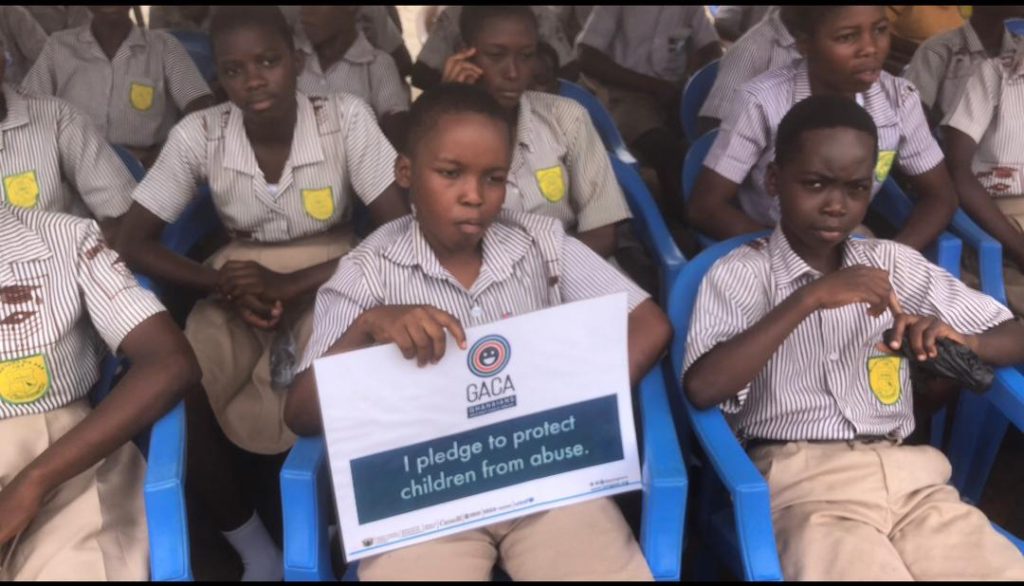By Simon Agbovi
Kasoa (C/R), Oct 16, GNA – Ghanaians Against Child Abuse (GACA) and the Centre for National Culture (CNC) are working together to combat child marriage and abuse in Ghana’s Central Region.
Their community outreach programme focused on raising awareness and educating selected fishing and farming communities in the Gomoa East District, including Nyanyano, Gomoa Fetteh, and Fetteh Kakraba, on the dangers of child marriage, and abuse.
On the theme: “For Our Bright Future, End Child Marriage Now,” the programme, through drama performances, sought to address issues such as drug abuse, child marriage, child labour, child rights, child neglect, sexual abuse, inclusive education, personal hygiene, and hand washing.
Mr. Ebenezer Kofi Nti, CNC’s Acting Central Regional Director, highlighted how cultural practices and economic activities contributed to these challenges, emphasising the role of theatre in helping children retain important lessons.
“We believe children can easily remember these lessons, and through drama, they can identify child abuse when they see the signs.”
Inspector James Oduro of the Domestic Violence and Victim Support Unit (DOVVSU) of the Ghana Police Service who also addressed the gathering said child marriage was illegal in Ghana.

He said Section 14 of the Children’s Act stipulated that no parent shall give a child under 18 in marriage and that offenders faced up to a year in prison, or a fine of GHC 5,000, while crimes such as rape and defilement carried a minimum sentence of seven years and maximum of 25 years.
Throughout the communities, the Ghana Education Service, Social Welfare, and the Girl Child Education Unit of the Gomoa East Assembly, took turns to address different areas of child welfare.
Madam Faustina Abbam, Head of Girl Child Education at Gomoa East District, speaking at Fetteh Kakraba, urged parents to avoid publicly shaming children when they were sexually abused.
She also encouraged children to report cases of abuse to their head teachers, parents or opinion leaders in their areas.
Funded by UNICEF, the programme brought together various stakeholders, including the Department of Social Welfare, DOVVSU, community leaders, the Ghana Education Service, Gomoa East District Assembly, traditional leaders, teachers, and students.
The initiative aimed to protect children and promote a safer, more informed community.
GNA